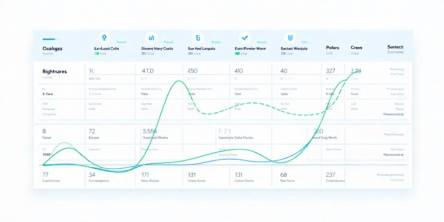What are the Advantages of Cross-Platform Mobile App Development?

Cross-platform mobile app development is app development that adapts intermediate app development languages like Javascript, ReactNative, Xamarin, Appcelerator, PhoneGap, SenchaTouch that's not native to the receptacle device's operating system.
As we can see today, everyone wants glitch-free apps that can run on multiple mobile platforms to connect with a larger target audience. Cross-platform mobile apps provide the best of both sides as they are built for multi-platform adaptability. But also there is a mix up or confusion between cross-platform and hybrid app development.
Difference between Cross-Platform and Hybrid App Development
Quite often there is a mix-up or confusion between cross-platform and hybrid app development. The basic fundamental difference between the two is that cross-platform mobile app development is app development that adapts intermediate languages like Javascript, ReactNative, Xamarin, Appcelerator, PhoneGap, SenchaTouch that's not native to the receptacle device's operating system. Cross-platform apps differ from HTML5 hybrid apps since hybrid app development normally uses a mix of native app and mobile app concepts.
Cross-platform mobile app development is now globally adopted by premier app developers since it takes away the rigorous need for time-consuming processes and makes the whole app development process agile. These are some of the best advantages of cross-platform mobile app development.
Best Advantages of Cross-Platform Mobile App Development
Cost-Effectiveness
There's an erroneous misconception that mobile app development, in general, is costly, time-consuming and way too overrated. Cross-platform mobile apps are far cheaper on average to build and maintain due to several factors. If cross-platform mobile apps have the right architecture, half of the app code can be adapted as a cross-platform app. A cross-platform mobile application implies lower costs in terms of quality assurance this is because a cross-platform mobile application includes UI elements specific to each platform.
Fast App Development Process
Every app developer appreciates and knows the value of time in app development. A fast app development process presents an opportunity for future business with the customer when it comes to developing more apps on cross-platform apps for their businesses and organizations. Besides, single-source code for multiple platforms helps curtail the app development effort by more than 50-60%. This helps app developers able to avail customer’s feature-rich business apps in shorter development time. Moreover, app development targets and set deadlines can very easily be achieved with cross-platform mobile app development.
Seamless Maintenance & Deployment Process
Even after the app development and deployment stage there are still challenges related to maintenance. Cross-platform mobile app development biggest advantage is adaptability on multiple platforms. Cross-platform apps can be run on several platforms. This simplifies the maintenance and deployment costs as the one single code is multi-adaptable. Equally app updates can easily be shared and aligned over several platforms and devices which saves so much time and money. Besides, bugs discovered in the common codebase are all fixable at one location. This is a boon for app developers in terms of time and money-saving both in the short and long term.
Native-Like App Performance
Cross-platform apps today have become mainstream as they deliver great user-experiences and performance. Cross-platform mobile app development technology has transformed with innovative additions to app features this has led to the ability to create native-like apps performance and experience for the end-user. This is largely possible as there is an array of advanced app development tools and functionality. With these app development tools, app developers can easily craft cross-platform mobile apps having a close appearance and performance of native mobile apps.
Large App Market/Target Audience
Cross-platform apps are built to enable access to a large target audience. Since all mobile app development is built for engagement with a certain demographics profile cross-platform mobile app development in many ways facilitates and easily backs up this aspiration compared to other mobile app platforms. In web development terms, this means possessing an app with capability for both Android and iOS platforms which maximizes reach and engagement.
Uniform and Consistent UX
The importance of the UX is always primary every mobile app. Cross-platform apps avail a smooth and dynamic UX that heightens the user experience for the end-user. This means app behaviour and functionality in the apps is stable, consistent and reliable. Consistency is one of the underlying vital features of well-designed UX. Consistency is when app users can identify recognize UI elements and know their interactions across multiple platforms whether it is web or mobile. New generation cross-platform mobile app development tools enable app developers and designers to craft uniform user experiences.
Cloud Integration and Adaptation
The cloud is the new emergent storage and interactive playground for mobile apps and other interactive software. Cross-platform mobile app development allows the addition of this to your great app development strategy.
Summary
This implies with the very best of Cross-Platform Mobile App Development it’s possible to build genuine apps that seamlessly adapt and function across mobile platforms. Cross-platform mobile app development lets developers build one app code that is adaptable across mobile app platforms.
Similar Articles
Food delivery applications, including Uber Eats, DoorDash, Zomato, Swiggy, and Grubhub, generate large volumes of valuable data.
Modern businesses are drowning in communication overload, and much of that burden stems from outdated tools that simply can’t keep up
Building lending software isn’t just a technical project—it’s a business decision. Whether you're a fintech founder or part of a traditional lending institution trying to go digital, three questions will shape everything that follows
Learn why robust security is crucial for super app development. Explore key strategies and best practices for mobile app development security.
Walkie-talkies with an extensive reception capacity have changed significantly when it comes to portable communication by displaying cutting-edge features with seamless connectivity that covers more than just the state
USB-C technology has revolutionized the way we charge our devices, offering faster charging speeds, higher power delivery, and universal compatibility across multiple devices
Discover expert mobile app development strategies to create a viral app that attracts users and boosts engagement
Optimize app localization for iOS users across the EU with language, cultural, and regulatory adaptations. Engage users and boost retention with these tips!
Discover the top 10 mobile app development trends of 2024! Explore 5G, AI, AR/VR, blockchain, and more to stay ahead in the ever-evolving app development landscape.









